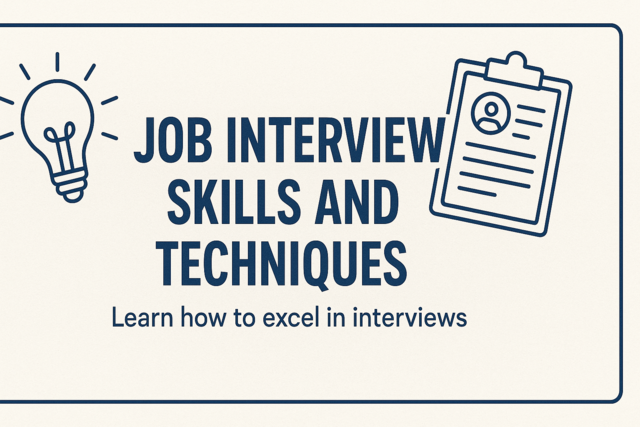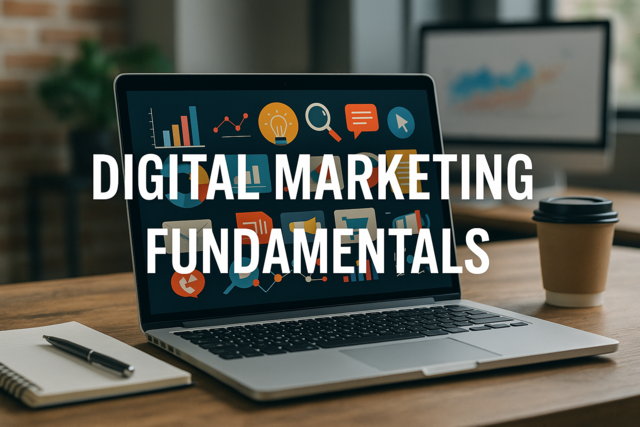Online Class: Introduction to Supply Chain Management

-
15Lessons
-
22Exams &
Assignments -
4Hours
average time -
0.4CEUs
Course Description
Embark on an unparalleled journey into the pulsating heart of global commerce with our Introduction to Supply Chain Management course. Imagine standing at the intersection of innovation and execution, where your strategic decisions pave the path for efficiency and excellence. This course isn't just an academic offering; it's your personal compass, guiding you through the intricate web of supply chains that fuel the world's economies. Design your future with the insights only this meticulously crafted learning experience can provide—the key to illuminating your career path and unlocking boundless potential.
In today's fast-paced world, the ability to steer supply chains with precision has become an indispensable skill, a cornerstone for businesses striving to lead rather than follow. Our course places you directly in the command seat of this transformative world, poised to make a real impact. Arising from our unique synthesis of cutting-edge theories and practical applications, this course delivers a mosaic of knowledge, precision, and strategic foresight. You won't just learn about supply chains; you'll master them.
Step into the realm of supply chain management with the confidence of a seasoned conductor orchestrating a symphony of logistics, sourcing, and distribution. Starting from the fundamental principles of designing and managing efficient networks, you'll delve into real-time advancements like digital transformations and sustainable practices, each nuance woven into a captivating narrative that's as enlightening as it is practical.
Picture yourself in control, using real-time tracking systems not just to monitor, but to predict and respond with agility to market shifts, much like the precise operations of global icons like Toyota. You will leave this course equipped with the ability to translate data insights into strategic decisions, enhancing both personal and organizational value. This isn't just technological theory—it's a roadmap to becoming indispensable in any business environment.
The course's journey continues into the vibrant landscape of procurement, where strategy becomes second nature. You will master the art of negotiation, aligning sourcing decisions with overarching business goals. The procurement knowledge gained here extends well beyond the classroom, ready to elevate your strategic importance in any organization you join, setting you apart as a thought leader in economic management.
As you progress, we unravel the complexities of demand forecasting and distribution networks, revealing how to effortlessly harmonize supply chain roles into a cohesive, efficient force. You will understand the impact of your decisions on the global stage, using qualitative insights to forecast and navigate uncertainty like never before. This is where the human element meets intelligent forecasting, creating a balanced understanding that prioritizes both the art and science of supply chain management.
But the learning isn't confined to the operational skills alone—we place a significant emphasis on the evolving narrative of sustainability. In an era where consumers value environmental responsibility as much as product quality, we explore how leaders integrate eco-conscious strategies into supply chain frameworks. Discover the transformative power of green logistics, alternative energies, and ethical sourcing practices. With these tools, your strategic vision is not just business-savvy but also planet-friendly, ready to innovate for a better tomorrow.
Moreover, delve deep into the digital transformation that's revolutionizing modern supply chains. With mastery over technologies such as cloud computing, blockchain, and AI, you will move forward as a torchbearer of change. These are not just words but lifelines in building robust, transparent, and future-ready supply chains poised for resilience amidst global challenges.
By enrolling in this course, you step into a world where your aspirations meet their match. Our approach is not merely theoretical contemplation but an interactive experience crafted to inspire action, provoke thought, and spawn innovation. Through this journey, you'll cultivate a comprehensive toolkit of skills, ready to redefine what's possible in supply chain management.
This course isn't just a stepping stone—it's your launchpad into a vibrant career where the possibilities are as expansive as your ambition. Enroll today, and become part of a community that doesn't just observe change but embodies it. The future of supply chain management awaits you, and with it, the opportunity to shape not only your destiny but also the industries you're poised to transform. Join us, and take the first step toward realizing the leader within.
- Business
- Business Ethics Courses
- Harassment Prevention Courses
- Human Resources Certifications
- Management
- Aromatherapy Courses
- Caregiver Courses
- Career Development Courses
- Communications Courses
- Confidence and Self Esteem Courses
- Healing
- Human Anatomy Courses
- Medical Skills
- Health & Medicine
- Nutrition
- Marketing
- Microsoft Office Certification Courses
- Life Coaching Courses
- Self-Improvement
- Small Business Certifications
- Safety
- Writing Improvement
- Business Writing Courses
Course Lessons
Lesson 1. Navigating Networks: The Strategic Art of Supply Chain Management
 Review Practice Worksheet: Lesson-1-WorkSheet-14345.pdf
Review Practice Worksheet: Lesson-1-WorkSheet-14345.pdf Lesson discussions: Reasons for Taking this Course
Lesson discussions: Reasons for Taking this Course Complete: Lesson 1 Activity
Complete: Lesson 1 Activity Assessment: Lesson 1 Review Exam
Assessment: Lesson 1 Review Exam
Lesson 2. Real-Time Tracking and its Impact on Supply Chains
 Review Practice Worksheet: Lesson-2-HomeWork-14347.pdf
Review Practice Worksheet: Lesson-2-HomeWork-14347.pdf Complete: Lesson 2 Activity
Complete: Lesson 2 Activity Assessment: Lesson 2 Review Exam
Assessment: Lesson 2 Review Exam
Lesson 3. Supply Chain Symphony: Harmonizing Roles for Success
 Review Practice Worksheet: Lesson-3-HomeWork-14350.pdf
Review Practice Worksheet: Lesson-3-HomeWork-14350.pdf Complete: Lesson 3 Activity
Complete: Lesson 3 Activity Assessment: Lesson 3 Review Exam
Assessment: Lesson 3 Review Exam
Lesson 4. Aligning Inventory Valuation with Business Strategies
 Review Practice Worksheet: Lesson-4-Downloadable-14352.pdf
Review Practice Worksheet: Lesson-4-Downloadable-14352.pdf Complete: Lesson 4 Activity
Complete: Lesson 4 Activity Assessment: Lesson 4 Review Exam
Assessment: Lesson 4 Review Exam
Lesson 5. Essentials of Procurement: From Needs to Negotiation
 Review Practice Worksheet: Lesson-5-WorkSheet-14354.pdf
Review Practice Worksheet: Lesson-5-WorkSheet-14354.pdf Assessment: Lesson 5 Review Exam
Assessment: Lesson 5 Review Exam
Lesson 6. The Human Element in Demand Forecasting
 Review Practice Worksheet: Lesson-6-WorkSheet-14357.pdf
Review Practice Worksheet: Lesson-6-WorkSheet-14357.pdf Assessment: Lesson 6 Review Exam
Assessment: Lesson 6 Review Exam
Lesson 7. Optimizing Distribution Networks: The Strategic Use of Transportation Modes
 Review Practice Worksheet: Lesson-7-HomeWork-14359.pdf
Review Practice Worksheet: Lesson-7-HomeWork-14359.pdf Complete: Lesson 7 Activity
Complete: Lesson 7 Activity Assessment: Lesson 7 Review Exam
Assessment: Lesson 7 Review Exam
Lesson 8. Digital Transformation in Supply Chains: Solving Modern Challenges with Technology
 Review Practice Worksheet: Lesson-8-WorkSheet-14361.pdf
Review Practice Worksheet: Lesson-8-WorkSheet-14361.pdf Assessment: Lesson 8 Review Exam
Assessment: Lesson 8 Review Exam
Lesson 9. Eco-Conscious Supply Chains and the Power of EIAs
 Review Practice Worksheet: Lesson-9-Downloadable-14364.pdf
Review Practice Worksheet: Lesson-9-Downloadable-14364.pdf Complete: Lesson 9 Activity
Complete: Lesson 9 Activity Assessment: Lesson 9 Review Exam
Assessment: Lesson 9 Review Exam
Lesson 10. Resilience and Strategy in Modern Supply Chains
 Review Practice Worksheet: Lesson-10-Downloadable-14367.pdf
Review Practice Worksheet: Lesson-10-Downloadable-14367.pdf Assessment: Lesson 10 Review Exam
Assessment: Lesson 10 Review Exam
Lesson 11. Measure, Monitor, Master: Crafting Efficiency in Supply Chain KPIs
 Review Practice Worksheet: Lesson-11-HomeWork-14369.pdf
Review Practice Worksheet: Lesson-11-HomeWork-14369.pdf Assessment: Lesson 11 Review Exam
Assessment: Lesson 11 Review Exam
Lesson 12. Challenges in Global Trade: Understanding Supply Chain Vulnerabilities
 Review Practice Worksheet: Lesson-12-HomeWork-14371.pdf
Review Practice Worksheet: Lesson-12-HomeWork-14371.pdf Complete: Lesson 12 Activity
Complete: Lesson 12 Activity Assessment: Lesson 12 Review Exam
Assessment: Lesson 12 Review Exam
Lesson 13. Lean Strategies for Supply Chain Management
 Review Practice Worksheet: Lesson-13-Activity-14373.pdf
Review Practice Worksheet: Lesson-13-Activity-14373.pdf Assessment: Lesson 13 Review Exam
Assessment: Lesson 13 Review Exam
Lesson 14. Innovative Approaches to Customer Service Within Supply Chains
 Review Practice Worksheet: Lesson-14-HomeWork-14375.pdf
Review Practice Worksheet: Lesson-14-HomeWork-14375.pdf Assessment: Lesson 14 Review Exam
Assessment: Lesson 14 Review Exam
Lesson 15. Enhancing Supply Chain Efficiency through AI's Predictive Power
 Review Practice Worksheet: Lesson-15-WorkSheet-14377.pdf
Review Practice Worksheet: Lesson-15-WorkSheet-14377.pdf Lesson discussions: End of Course Poll; Course Comments
Lesson discussions: End of Course Poll; Course Comments Assessment: Lesson 15 Review Exam
Assessment: Lesson 15 Review Exam
Learning Outcomes
- Analyze the impact of technology, such as AI and blockchain, on supply chain management, and evaluate how these innovations contribute to efficiency and transparency in a global context.
- Define the key components of supply chain management, including sourcing, procurement, inventory management, and logistics, and demonstrate their significance in optimizing business operations.
- Demonstrate understanding of inventory management's impact on logistics by describing how just-in-time systems and predictive analytics can synchronize stock levels with demand.
- Define the role of transportation management within supply chain logistics by identifying the factors influencing mode selection and route optimization, demonstrating use of transportation management systems.
- Analyze the distinct roles of supply chain actors to evaluate their impact on efficiency and value delivery.
- Apply advanced forecasting techniques and risk management strategies to enhance demand and supply alignment in dynamic supply chain environments.
- Analyze how technology, such as ERP systems and AI, enhances inventory management by providing real-time insights and predictive analytics, and measure its effects on operational efficiency.
- Define the impact of different inventory valuation methods on a company's financial performance and tax obligations, demonstrating understanding through case analysis.
- Identify and evaluate suppliers using comprehensive criteria beyond cost to ensure alignment with organizational goals and sustainability practices.
- Recognize and analyze the key steps in the procurement process to optimize cost efficiency and supplier relationships.
- Demonstrate the application of time series analysis in supply chain management by enabling learners to predict demand fluctuations utilizing historical data, ensuring optimal inventory levels.
- Identify the benefits of qualitative demand forecasting methods in predicting market trends, enabling participants to integrate qualitative insights into strategic decision-making processes.
- Identify the unique characteristics of each transportation mode and analyze their impacts on supply chain efficiency and sustainability.
- Demonstrate mastery of lesson content at levels of 70% or higher.
Additional Course Information

- Document Your Lifelong Learning Achievements
- Earn an Official Certificate Documenting Course Hours and CEUs
- Verify Your Certificate with a Unique Serial Number Online
- View and Share Your Certificate Online or Download/Print as PDF
- Display Your Certificate on Your Resume and Promote Your Achievements Using Social Media

Related Courses
-
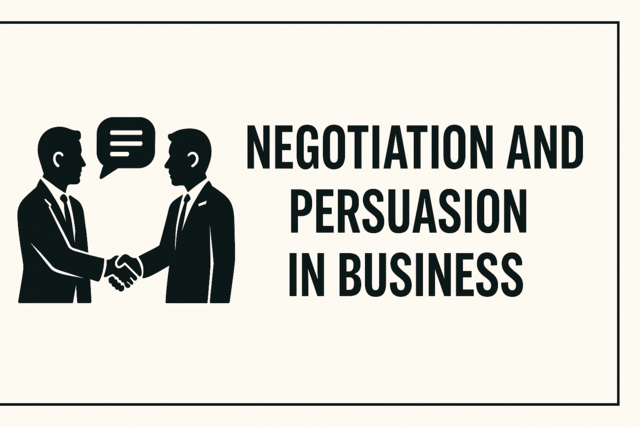 7 hours
0.7 CEUs
Negotiation and Persuasion in Business
+ More Info
7 hours
0.7 CEUs
Negotiation and Persuasion in Business
+ More Info
-
 6 hours
0.6 CEUs
Introduction to Minimalist Living
+ More Info
6 hours
0.6 CEUs
Introduction to Minimalist Living
+ More Info
-
 4 hours
0.4 CEUs
The Elemental Nexus: Integrating New Age Alchemy and Druidic Rituals
+ More Info
4 hours
0.4 CEUs
The Elemental Nexus: Integrating New Age Alchemy and Druidic Rituals
+ More Info
-
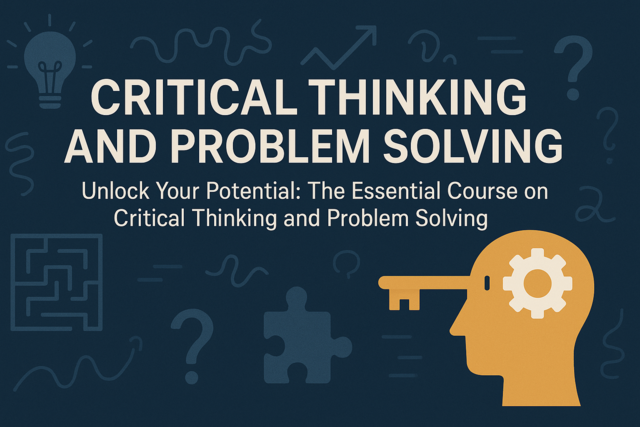 5 hours
0.5 CEUs
Critical Thinking and Problem Solving
+ More Info
5 hours
0.5 CEUs
Critical Thinking and Problem Solving
+ More Info
-
 6 hours
0.6 CEUs
Digital Literacy and Security
+ More Info
6 hours
0.6 CEUs
Digital Literacy and Security
+ More Info
-
 7 hours
0.7 CEUs
Haute Couture Chronicles: Inside the World of Luxury Brands
+ More Info
7 hours
0.7 CEUs
Haute Couture Chronicles: Inside the World of Luxury Brands
+ More Info
-
 4 hours
0.4 CEUs
Vital Conversations: Cultivating Depth in Daily Interactions
+ More Info
4 hours
0.4 CEUs
Vital Conversations: Cultivating Depth in Daily Interactions
+ More Info
-
 5 hours
0.5 CEUs
Metaphysical Realms: A Journey Beyond
+ More Info
5 hours
0.5 CEUs
Metaphysical Realms: A Journey Beyond
+ More Info
-
 6 hours
0.6 CEUs
Cryptids: Creatures of Folklore and Reality
+ More Info
6 hours
0.6 CEUs
Cryptids: Creatures of Folklore and Reality
+ More Info
-
 3 hours
0.3 CEUs
Addressing Trauma in Students with Disabilities
+ More Info
3 hours
0.3 CEUs
Addressing Trauma in Students with Disabilities
+ More Info
-
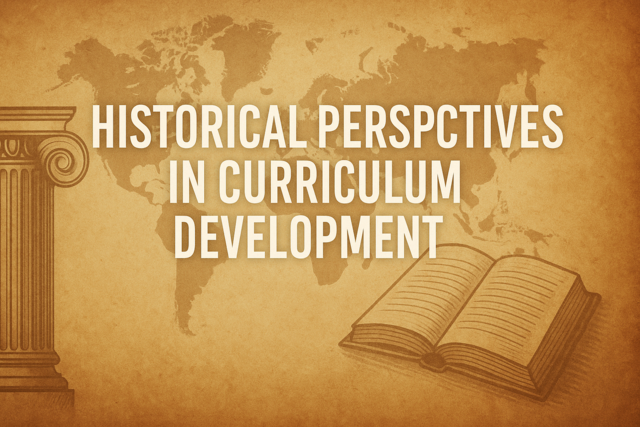 3 hours
0.3 CEUs
Historical Perspectives in Curriculum Development
+ More Info
3 hours
0.3 CEUs
Historical Perspectives in Curriculum Development
+ More Info
-
 3 hours
0.3 CEUs
Preparing Special Education Students for Standardized Tests
+ More Info
3 hours
0.3 CEUs
Preparing Special Education Students for Standardized Tests
+ More Info
-
 7 hours
0.7 CEUs
Blended Learning Models in Schools
+ More Info
7 hours
0.7 CEUs
Blended Learning Models in Schools
+ More Info
-
 6 hours
0.6 CEUs
The Influence Index: How Environment Shapes Relationships
+ More Info
6 hours
0.6 CEUs
The Influence Index: How Environment Shapes Relationships
+ More Info
-
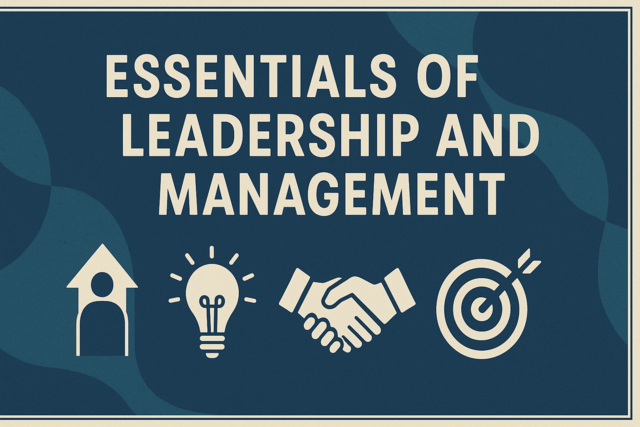 4 hours
0.4 CEUs
Essentials of Leadership and Management
+ More Info
4 hours
0.4 CEUs
Essentials of Leadership and Management
+ More Info
-
 7 hours
0.7 CEUs
Harmony at Home: Techniques for Peaceful Coexistence
+ More Info
7 hours
0.7 CEUs
Harmony at Home: Techniques for Peaceful Coexistence
+ More Info
-
 4 hours
0.4 CEUs
Bridging the Gap: Special Education and General Education Collaboration
+ More Info
4 hours
0.4 CEUs
Bridging the Gap: Special Education and General Education Collaboration
+ More Info
-
 3 hours
0.3 CEUs
Agile and Scrum Fundamentals
+ More Info
3 hours
0.3 CEUs
Agile and Scrum Fundamentals
+ More Info
-
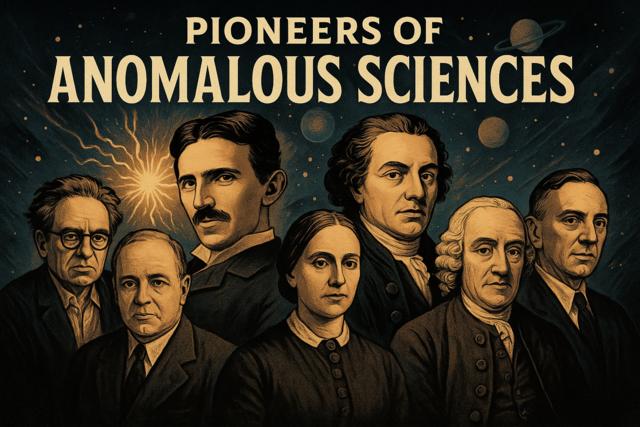 7 hours
0.7 CEUs
Pioneers of Anomalous Sciences
+ More Info
7 hours
0.7 CEUs
Pioneers of Anomalous Sciences
+ More Info
-
 4 hours
0.4 CEUs
Energy Medicine: Harnessing Your Body's Power
+ More Info
4 hours
0.4 CEUs
Energy Medicine: Harnessing Your Body's Power
+ More Info
-
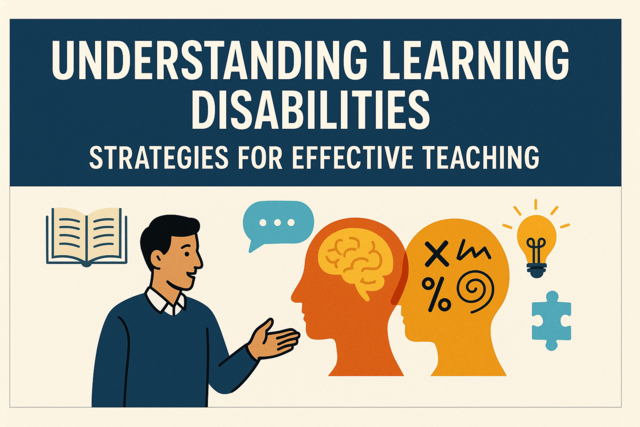 7 hours
0.7 CEUs
Understanding Learning Disabilities: Strategies for Effective Teaching
+ More Info
7 hours
0.7 CEUs
Understanding Learning Disabilities: Strategies for Effective Teaching
+ More Info
-
 3 hours
0.3 CEUs
Beyond the Veil: Mysteries of Life After Death
+ More Info
3 hours
0.3 CEUs
Beyond the Veil: Mysteries of Life After Death
+ More Info
-
 7 hours
0.7 CEUs
Developing and Maintaining Healthy Habits
+ More Info
7 hours
0.7 CEUs
Developing and Maintaining Healthy Habits
+ More Info
-
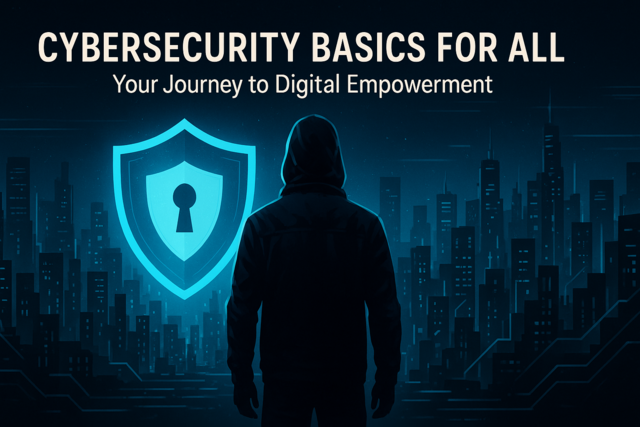 3 hours
0.3 CEUs
Cybersecurity Basics for All
+ More Info
3 hours
0.3 CEUs
Cybersecurity Basics for All
+ More Info
-
 4 hours
0.4 CEUs
Critical Thinking and Problem Solving Techniques
+ More Info
4 hours
0.4 CEUs
Critical Thinking and Problem Solving Techniques
+ More Info
-
 4 hours
0.4 CEUs
Business Writing for Professionals
+ More Info
4 hours
0.4 CEUs
Business Writing for Professionals
+ More Info
-
 4 hours
0.4 CEUs
Strengthening Sibling Bonds: Strategies for Lifelong Friendships
+ More Info
4 hours
0.4 CEUs
Strengthening Sibling Bonds: Strategies for Lifelong Friendships
+ More Info
-
 7 hours
0.7 CEUs
Basics of Entrepreneurship
+ More Info
7 hours
0.7 CEUs
Basics of Entrepreneurship
+ More Info
-
 3 hours
0.3 CEUs
Exploring Parallel Universes
+ More Info
3 hours
0.3 CEUs
Exploring Parallel Universes
+ More Info
-
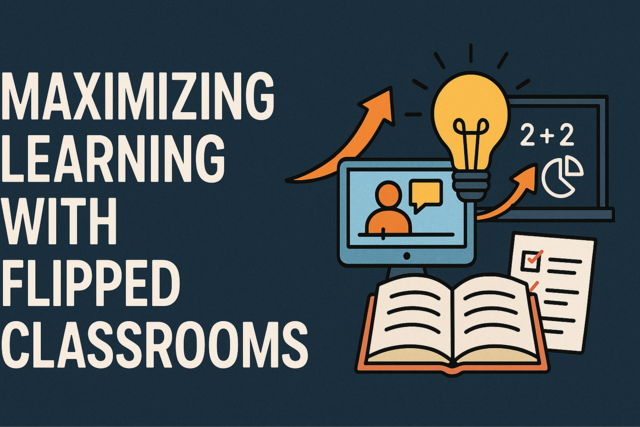 5 hours
0.5 CEUs
Maximizing Learning with Flipped Classrooms
+ More Info
5 hours
0.5 CEUs
Maximizing Learning with Flipped Classrooms
+ More Info
-
 6 hours
0.6 CEUs
Luxe Vision: Designing a Fashionable Future
+ More Info
6 hours
0.6 CEUs
Luxe Vision: Designing a Fashionable Future
+ More Info
-
 4 hours
0.4 CEUs
Collaboration Skills for Special Education Teams
+ More Info
4 hours
0.4 CEUs
Collaboration Skills for Special Education Teams
+ More Info
-
 3 hours
0.3 CEUs
The Science of Happiness in Family Life
+ More Info
3 hours
0.3 CEUs
The Science of Happiness in Family Life
+ More Info
-
 3 hours
0.3 CEUs
Unpacking Attachment Styles: Keys to Healthier Relationships
+ More Info
3 hours
0.3 CEUs
Unpacking Attachment Styles: Keys to Healthier Relationships
+ More Info
-
 6 hours
0.6 CEUs
Transition Planning: From School to Adult Life
+ More Info
6 hours
0.6 CEUs
Transition Planning: From School to Adult Life
+ More Info
-
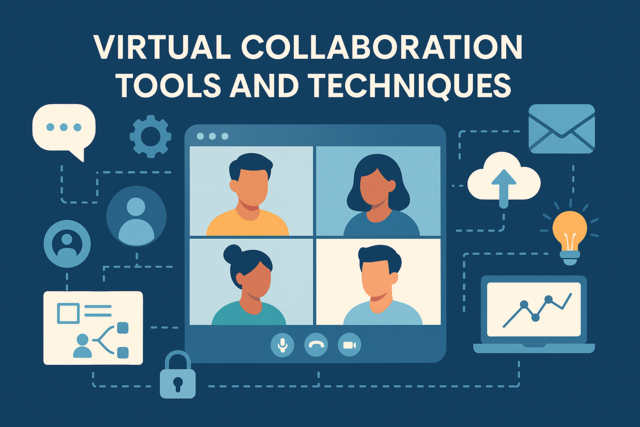 5 hours
0.5 CEUs
Virtual Collaboration Tools and Techniques
+ More Info
5 hours
0.5 CEUs
Virtual Collaboration Tools and Techniques
+ More Info
-
 4 hours
0.4 CEUs
Implementing Universal Design for Learning (UDL)
+ More Info
4 hours
0.4 CEUs
Implementing Universal Design for Learning (UDL)
+ More Info
-
 7 hours
0.7 CEUs
Promoting Independence and Life Skills
+ More Info
7 hours
0.7 CEUs
Promoting Independence and Life Skills
+ More Info
-
 4 hours
0.4 CEUs
Implementing Project-Based Learning
+ More Info
4 hours
0.4 CEUs
Implementing Project-Based Learning
+ More Info
-
 4 hours
0.4 CEUs
Raising Emotionally Intelligent Children: A Guide for Parents
+ More Info
4 hours
0.4 CEUs
Raising Emotionally Intelligent Children: A Guide for Parents
+ More Info


